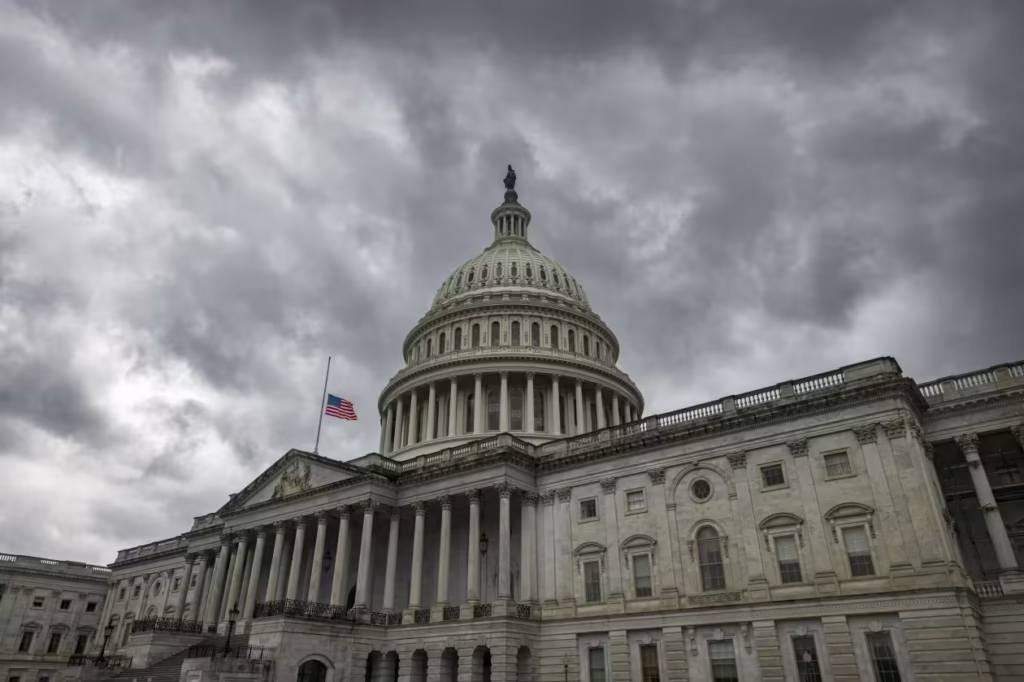Early Thursday, House Republicans approved a big new tax and spending bill that would give new incentives for overtime labor, tipped earnings, and other provisions, as well as permanentize President Donald Trump’s 2017 individual tax cuts.
Despite widespread Democratic opposition, the legislation succeeded by a single vote. It now faces a challenging test of passing a Senate controlled by Republicans with different goals and preferences.
Given the Senate’s protracted process and the numerous difficult issues the upper chamber will have to resolve in the upcoming weeks, the Trump administration has set an ambitious deadline of July 4 to have the measure signed into law. The bill could look like this:
Keep the salt in place.
The bill’s House version increased the state and local tax deduction threshold from $10,000 to $30,000, with the advantage gradually disappearing for people earning over $500,000.
For those with adjusted incomes of $600,000 or more, the restriction would return to the present $10,000 threshold because it decreases by 30 cents for each dollar a taxpayer earns over $500,000.
Over a ten-year period, the cap and phase-out will rise by 1% year, reaching $43,000 by 2033 and starting at $541,000 for the phase-out.
That is significantly less than what some Republicans in high-tax states like New York were hoping for when the negotiations started, and there is a possibility that the Senate will further reduce it.
Since few Senate Republicans from high-tax states, they are not nearly as excited about hiking the SALT cap. By making the deduction less generous than in the House version, they might try to save money.
According to Senate Majority Whip John Barrasso of Wyoming, the SALT cap hike is viewed by his fellow Republicans in the upper house as a necessary evil in order to secure a majority of votes in the House on Wednesday.
At an event organized by the law firm BakerHostetler in Washington, D.C., the No. 2 Senate Republican stated, “There is not a single senator who is impacted by SALT.” “We can relate to their circumstances in that location, but we don’t face the same difficulties or pressures. We need to concentrate on other matters involving other members.
Medicaid reductions
The Medicaid program, which offers health insurance to around 77 million Americans, is subject to drastic changes in the House version of the bill.
Republicans intensified program cuts in their last-minute amendments to the measure early Thursday, which will save the government more money—likely by taking millions of Americans out of the program.
New Medicaid work requirements, which will take effect by the end of 2026 instead of the prior start date of 2029, and a modification to the amount of leeway future administrations will have to create exemptions are the major points of contention.
Spencer Perlman, director of healthcare-policy research at Veda Partners, said these changes are likely to increase the 8.6 million Americans without insurance that the Congressional Budget Office had projected would have been left uninsured by the end of the decade under an earlier version of the bill.
“We believe the revisions… are likely to further increase Medicaid and [Obamacare exchange] coverage losses and a rise in the uninsured,” he wrote in a client letter on Thursday.
However, some Republicans are adamantly opposed to policies that would significantly raise the number of Americans without health insurance, so these drastic cuts might not pass muster in the Senate.
“We continue to believe that the Senate’s appetite for Medicaid reforms is demonstrably smaller than the House,” Perlman stated. “We anticipate a fierce internal debate among congressional Republicans on how to reconcile the differences between the two chambers.”
Tax rebates for clean energy
Many clean-energy tax incentives, which were initially established under the Inflation Reduction Act and were intended to increase the generation of energy from sources like solar, wind, and nuclear, were aggressively pushed to be eliminated by House Conservatives.
Although they were unable to completely eliminate the credits, they were able to impose new restrictions on them. Only clean-energy projects that begin construction within 60 days of the law’s adoption and are operational by 2028 are eligible for tax benefits under the new regulations.
Nuclear power is an exception, receiving a little more time. Additionally, the law terminates a significant tax credit for existing nuclear facilities earlier than anticipated and prohibits projects that receive assistance from specific foreign nations.
However, a Beacon Policy Advisors report released Thursday shows that many Senate Republicans are not prepared to end these tax advantages that boost economic activity in their home regions.
They said in a message on Thursday that “the GOP is helplessly split over the topic of renewable power,” pointing out that many moderates in the House are hopeful the Senate would restore many of the credits that were taken away during House negotiations.
Beacon anticipates that Republican Sens. John Curtis of Utah, Jerry Moran of Kansas, Thom Tillis of North Carolina, and Lisa Murkowski of Alaska would push for a more generous phase-out of these subsidies.
“House skeptics are punting the ball to the Senate, foisting the responsibility on pushing back against the restrictions imposed on the credits to their counterparts in the upper chamber,” the analysts stated. “The outlook is far from certain.”





